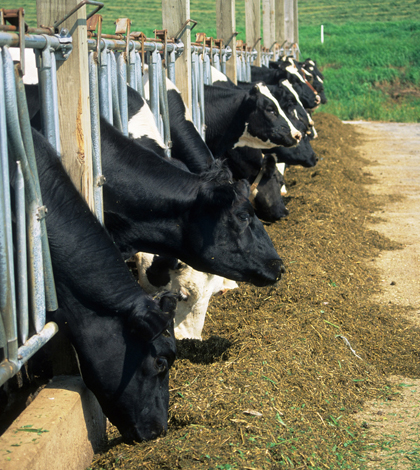Wisconsin farm studies find best practices still cause bad water

Cows in stalls at a concentrated animal feeding operation in Wisconsin (Credit: Wisconsin DNR, via Flickr)
Two new U.S. Department of Agriculture studies show that, even when properly maintained, agricultural land use can still have detrimental effects on local groundwater, the Green Bay Press Gazette reported.
One of the studies showed that agricultural activity was tainting private wells, despite farmers’ use of nutrient management plans. The same study found that 96 percent of the groundwater’s high nitrate level was derived from agriculture. Livestock manure contamination has led to the replacement of 66 Wisconsin wells since 2006.
A Dairy Business Association lobbyist claimed that the studies failed to clearly define the source of excess nitrogen.
Livestock manure contamination can spread a variety of harmful bacteria, most notably salmonella, which turned up in four of 10 wells tested in a second Wisconsin study.
Image: Cows in stalls at a concentrated animal feeding operation in Wisconsin (Credit: Wisconsin DNR, via Flickr)





0 comments